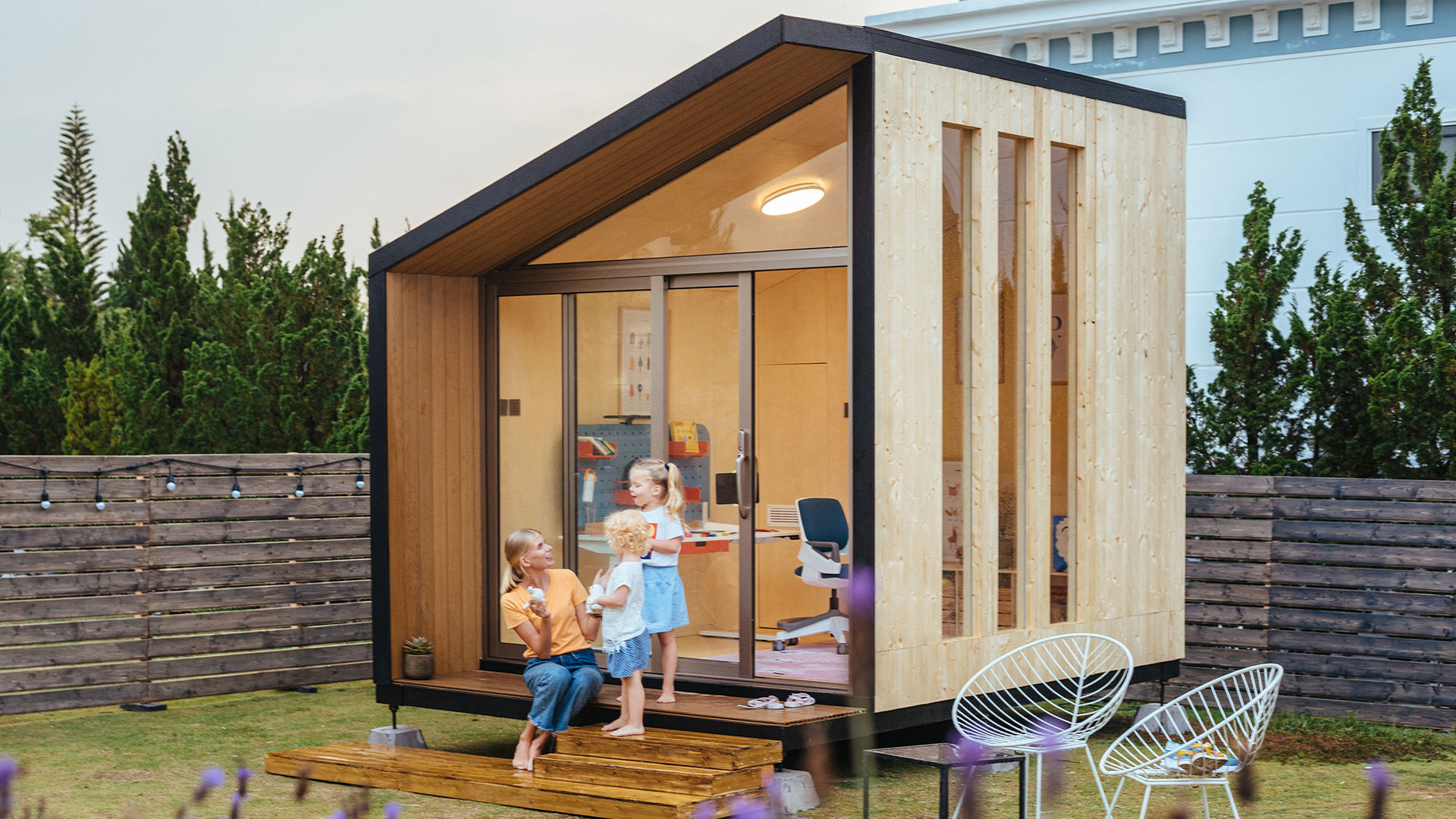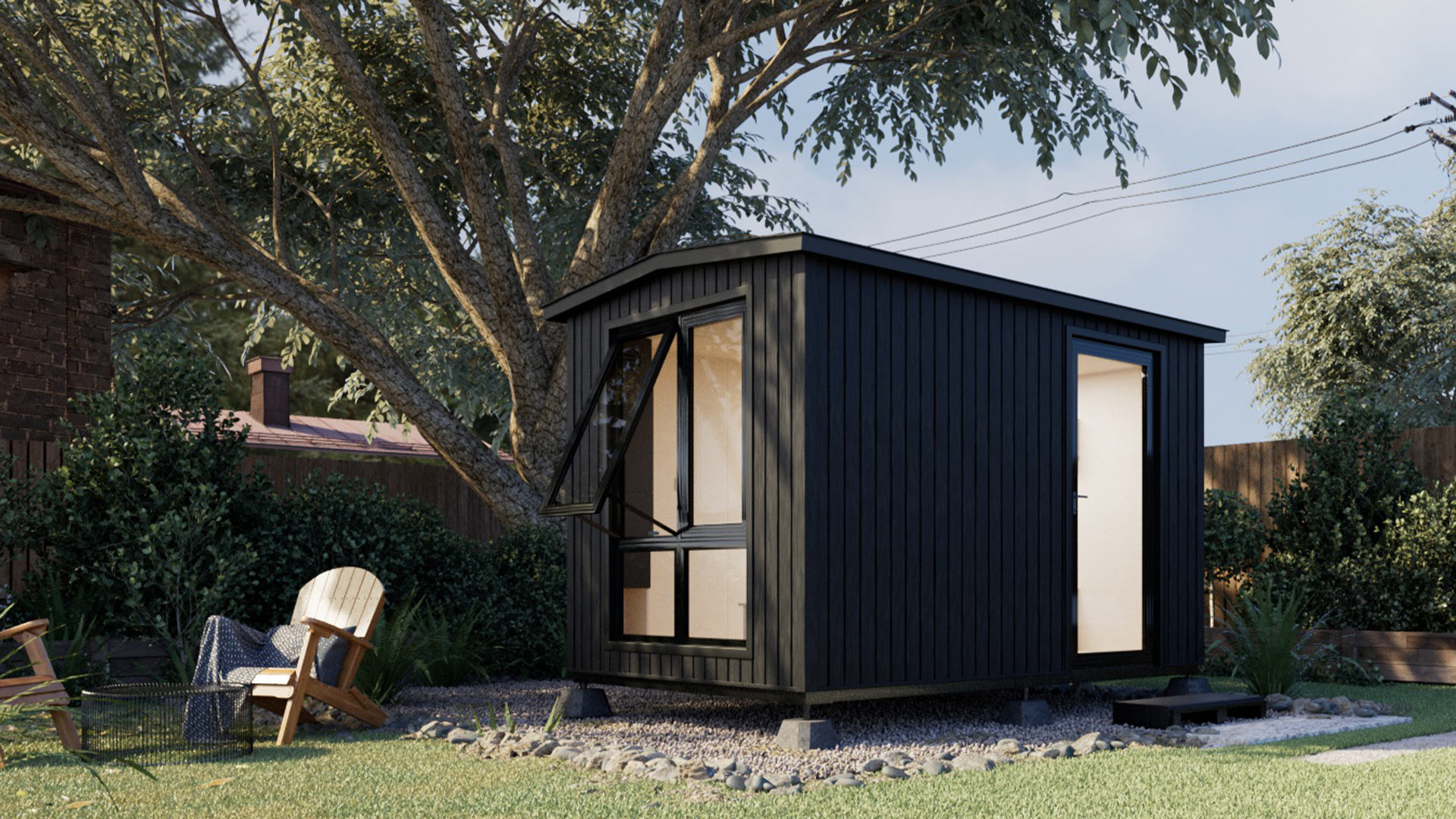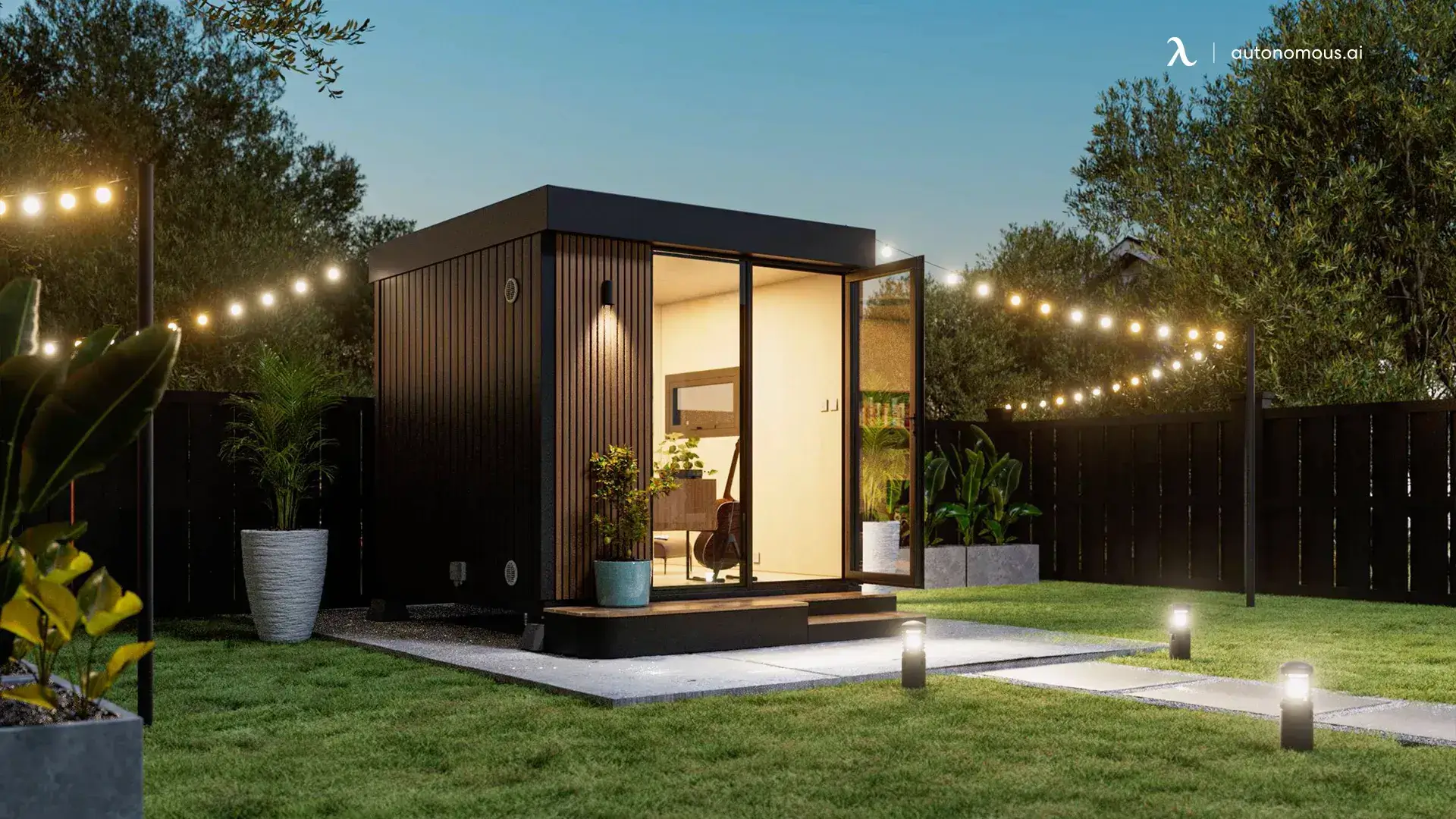
Environmental Considerations for Your California Modular Home
Over the last few years, as the demand for housing has continued to increase in its metropolitan areas, there has been an increase in the number of homeowners choosing to build or buy modular homes in California.
One of the most popular options that suits most property owners is to simply buy a prefab ADU, meaning an Accessory Dwelling Unit. With these types of prefab homes, California residents can quickly add a structure to their properties with very little fuss.
Also, the state government has provided further incentives to its residents to build tiny additional homes by awarding California ADU grants to those who qualify.
However, if you are considering buying or building a prefab ADU, there are certain environmental factors that you will have to consider. This article will look at a few of the more important ones to help you plan the best way to have an extra structure next to your main house.
Six Important Environmental Factors When Planning/Building Modular Homes in California
There are many questions that homeowners will have to ask themselves as they embark on this journey, such as “How big can an ADU be in California?” or “What state regulation must I consider when building a backyard office pod?”
When it comes to environmental considerations, the following are six important factors you will have to keep in mind:
Climate and Weather Conditions
When it comes to weather conditions, the good news about California is that it has a very pleasant climate most of the year. As such, ADUs built in this state do not have many difficult recommendations regarding insulation and the like.
Furthermore, when building modular homes, southern California residents need to keep in mind that this region is generally quite warm throughout the year. Therefore, you will need to make sure that you have a good cooling system for your modular homes.
Northern California areas, however, receive a lot more snow and rainfall, meaning that the homes in this area have to be made from the type of materials that will withstand high moisture content.
Energy Efficiency and Renewable Energy
There are also a variety of ADU requirements California residents need to meet when it comes to how much energy their pods will require.
In general, the state of California requires most ADUs to have mandatory ventilation systems, high-quality insulation, high-performance windows, and the use of energy-efficient HVACs, lighting, and other appliances.
Usually, homeowners will be encouraged to make use of renewable energy sources for their ADUs so as not to increase pressure on the existing power grid when more homes are built. Solar panels, for example, may be required on all new ADUs, but they do not have to be installed on the ADU itself if such a construction will be complicated. They can be placed on the ground or other existing structures.
If existing homes do not already have solar panels, they may be required to add them if they undergo extensive upgrades or renovations. It is also worth noting that solar panels tend to increase the value of the property, which is great news if you decide to sell your home in the future.
Water Conservation and Management
Another important resource that you must consider when adding an ADU to your property is water. Usually, modular homes in California must have their own separate kitchen and bathroom. This means that the amount of water used will likely increase if the ADU is going to be used regularly.
Fire sprinklers are another possible use of water. However, under California ADU regulations, fire sprinklers will only be required in the ADU if they are also listed as a mandatory requirement for the main house on the property.
When it comes to water conservation and management for modular homes, northern California homeowners can take advantage of the higher amount of rainfall they receive to collect and store large amounts of water for use in flushing and cleaning systems.
Materials and Construction Practices
The type of material you will be required to use on your ADU greatly depends on the weather and climate conditions in the specific part of California where you live. As such, when looking at modular homes for sale, California residents in the northern part of the state may find that their ADUs have a lot more water-resistant materials than those in the south.
With the varying needs for insulation in modular homes, California prices for ADUs will also vary depending on the place you live. One of the things you may need to carefully consider is whether the materials used are environmentally friendly. As such, it would be better to stick to sustainable materials when constructing your ADU.
In some cases, sustainable construction practices are essential during the building phase to minimize environmental impact. However, you can simplify the process by opting for a solar powered ADU. Prefab solar-powered units not only reduce the need for extensive on-site construction but also come with integrated renewable energy systems, requiring minimal installation. This eco-friendly alternative offers a quick, hassle-free setup while promoting sustainability, making it an ideal choice for modern living.
Site Selection and Land Use Planning
One other thing you will have to carefully consider when building an ADU in California is site selection and land use. You cannot simply place your ADU anywhere you want on the property without considering the local zoning regulations.
A great example of this is when it comes to the setbacks allowed for ADUs in California. What is a setback? A setback refers to the distance between the ADU and the inner perimeter of your property. According to state regulations, your ADU will have to be at least four feet from the side and rear of your property.
You are also not allowed to place your ADU between the main house and the street. In this regard, you also need to consider front setbacks. However, if your city’s front setback requirements do not allow you to build an ADU bigger than 800 square feet, these front setback requirements will be exempted.
These rules on site selection and land management do not apply to garage ADUs, which may have their own particular requirements that you need to consider.
Transportation of the Modular Home
Another important environmental consideration when it comes to buying or building modular homes in California is the transportation of either the materials or the prefab ADU itself.
Here, it is usually better to source your materials from local suppliers so that you limit the distance the trucks will have to travel to deliver your items. If you are buying a prefab ADU, consider responsible manufacturers such as Autonomous. Transportation is provided for most states in the US except for Hawaii and Alaska.
Autonomous ADUs for 2024
When looking for modular homes for sale, California residents can visit Autonomous and take a look at the fantastic options available. Autonomous is one of the top modular home builders in California and has three great products for you to choose from.
Depending on what you need your ADU for, you can go for the WorkPod, WorkPod Versatile, or WorkPod mini. Below is a brief look at each of these ADUs to help you choose the one that is best for you.
1. WorkPod
The top-selling prefab ADU on the Autonomous page is the WorkPod. Built to be stylish, functional, reliable, and versatile, this pod would look great sitting in your backyard.
One of the most eye-catching features of the WorkPod is its huge panoramic windows that cover the entire front face of the ADU. These windows let in a lot of natural light making the pod a very pleasant place to work in during the day.
The WorkPod is also made from high-quality, weather-proof. And humidity-resistant materials that keep it at optimal insulation temperatures no matter which part of California you live in.
Whether you are looking for a quiet place to set up a home office or an extra home to rent out, the WorkPod is the perfect solution. All you have to do is make sure you get the right kind of furniture for your pod and you will be ready to go.
Reason to Buy
One of the most wonderful things about the WorkPod is its great looks. If you are looking for an aesthetically pleasing pod for your backyard, this is the one to buy. Its high-quality materials also ensure that the pod will last you a very long time.
2. WorkPod Versatile
Similar to the WorkPod but with many subtle differences, the WorkPod Versatile is a great alternative for those looking for a more private backyard office pod. This pod replaces the panoramic windows with a solid wall which makes the interior a lot cozier. If you welcome the thought of being able to shut the door to escape from the noise outside, get your hands on the WorkPod Versatile.
One thing that many pod owners struggle with is having to decide which type of furniture they will have to buy for their tiny home. The limited size inside the WorkPod Versatile makes this task even more difficult.
However, Autonomous is the perfect solution for your needs. When you buy your WorkPod Versatile, you have the option of requesting furniture to be added to your purchase. Simply decide whether you want to use your ADU as a home office or a rental unit and Autonomous will include all the required furniture. All you will have to do is set up your pod and it will be ready for use.
Reason to Buy
The added privacy provided by the solid walls of the WorkPod Versatile is a great feature that many users who enjoy peace and quiet will love. You can easily escape the hustle and bustle of family life by simply closing the door of your ADU.
3. WorkPod mini
One thing you will never have to worry about when you buy an ADU from Autonomous is the California ADU size limit law. This is especially true when it comes to the WorkPod mini. As the smallest of all the ADUs available at Autonomous, this pod is perfect for homeowners who have very little space in their yards.
However, despite its seemingly small stature, the WorkPod mini is still able to provide a lot of space for a wide range of activities. You can use it as a studio, shed, home office, or even a sleeping pod that can be rented out to tenants. The only downside is that your WorkPod mini will not come with any additional pieces of furniture, so you will have to pick the right items yourself.
In terms of quality of material and ease of installation, the WorkPod mini is very similar to both the WorkPod and the WorkPod Versatile. Thus, in no time at all, your WorkPod mini will be set up and ready for use. It has a “Plug and Play” feature that makes it easy for you to have your pod running a few minutes after the installation is complete.
Reason to Buy
When buying modular homes, California prices can be the biggest stumbling block for most homeowners. However, with this particular backyard tiny home, you can enjoy all the benefits of having an ADU while saving thousands of dollars in the process. You also do not have to worry about permits in most localities in California if you buy an ADU this small.
Need a Tiny House? Visit Autonomous Today!
Buying modular homes in California is quickly becoming a very popular investment for most homeowners. If you are looking for a great way to invest in your property, a prefab ADU may be the way to go.
However, you have to be very careful when choosing the supplier because not all modular home builders in California take the time to make important environmental considerations when constructing their ADUs.
That is why choosing Autonomous is the right option. You can buy the WorkPod, WorkPod Versatile, or WorkPod mini directly from the Autonomous website, and rest assured that you are getting the most environmentally safe and high-quality ADU on the market.
Spread the word
.svg)





.webp)
.webp)




